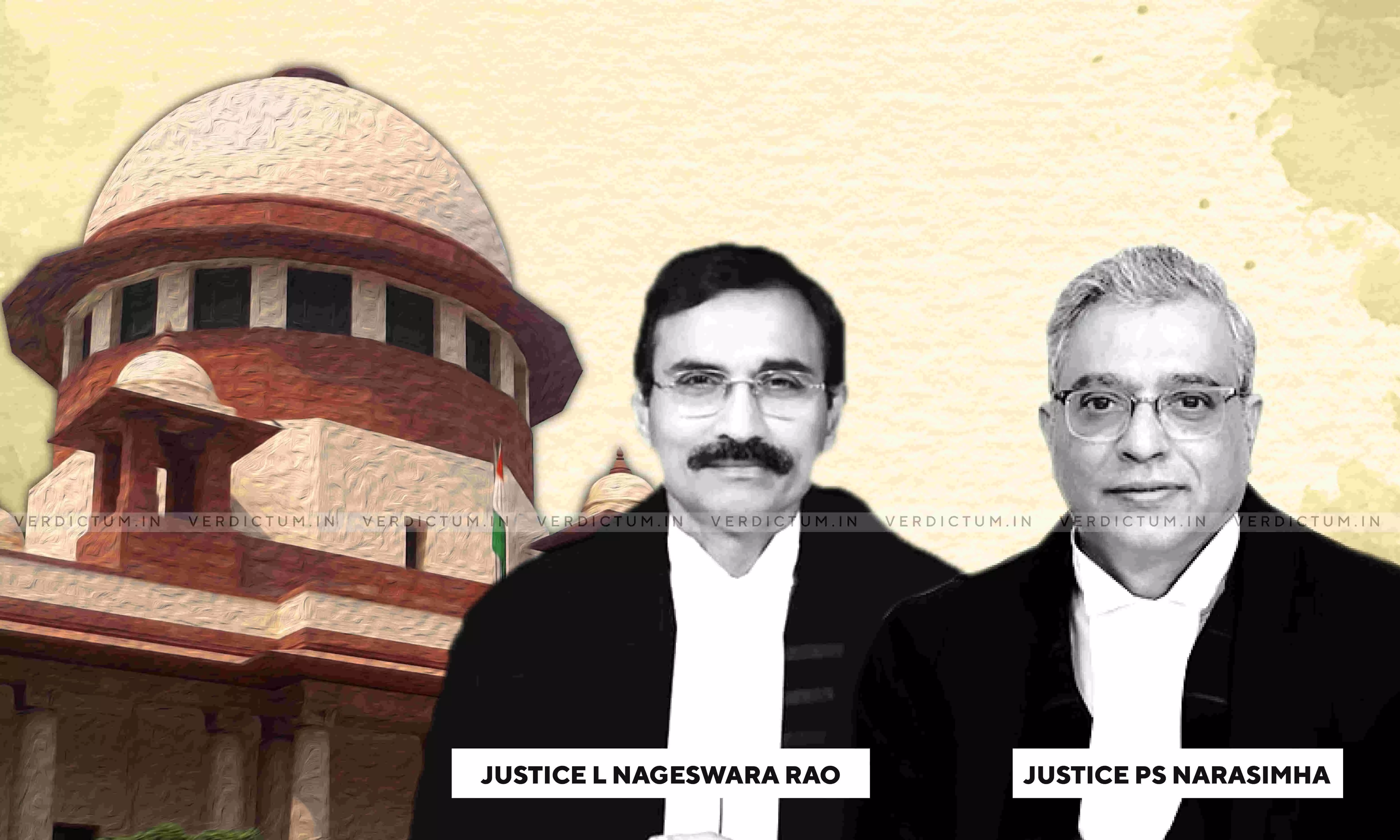
Appellate Jurisdiction Of Supreme Court U/s. 15Z Of SEBI Act Is Confined To Determining Only Question Of Law - SC
 |
|The Supreme Court recently dismissed an appeal filed under Section 15Z of the Securities and Exchange Board of India Act against the order of the Securities Appellate Tribunal by which the Tribunal had set aside the order passed by the Securities Exchange Board of India restricting Mega Corporation Limited from accessing the capital market for one year and further restraining the promoter directors from buying, selling or otherwise dealing with securities for India.
The Court while dismissing the appeal has explained the jurisdiction of the Supreme Court under Section 15Z of SEBI Act that is confined to question of law.
The Supreme Court bench comprising of Justice L. Nageswara Rao and Justice P. S. Narasimha heard the matter where Respondent which is a listed company is engaged in the business of radio taxi service, coupled with trading of shares in a small measure till 2004. The attention of SEBI was drawn to the unusual price movement of the scrip of the Company between January 2005 to September 2005. This upward spurt resulted in an increase in the average monthly volume of shares. The SEBI observing this activity directed investigation while passing an ex parte ad interim order against 56 entities. After hearing the objections, the interim orders were confirmed, and a show-cause notice for violation of Regulations of the SEBI (Prohibition of Fraudulent and Unfair Trade Practices Relating to Securities Market) Regulations, 2003 was issued.
SEBI passed the final order holding that the company had violated the provisions of the Act and the SEBI Regulations, 2003 and thus restrained the Company from accessing the capital market in any manner and its directors from dealing in securities for one year.
The company then filed an appeal before the Tribunal. The Tribunal allowed the appeal on the ground that, the unusual profits, by itself cannot constitute any transgression of the law.
The issues which were dealt with by the Court were -
i) What is the scope and ambit of statutory appeal to the Supreme Court under Section 15Z of the Act against an order passed by SAT.
ii) Whether the advertisements were in violation of Regulations 3 (a), (b), (c), (d) read with Regulation 4 (1), (2) (k) and (r) as amounting to misleading and defrauding the investors.
iii) Whether the Company had violated Regulations 3(a), (b), (c) and (d) and Regulation 4(1), 4(2)(k) and 4(2) (r) of the SEBI (PFUTP) Regulations, 2003 by manipulating the share prices and accounts.
iv) Whether there was a right to cross-examine the author of a document if SEBI seeks to rely on that document which is against the interest of the company?
The Supreme Court deciding the first issue laid down the scope of appeal under Section 15Z stating that, "The Supreme Court will exercise jurisdiction only when there is a question of law arising for consideration from the decision of the Tribunal." The apex court also stated that, "The Tribunal while exercising jurisdiction under Section 15T, apart from acting as an appellate authority on fact, also interprets the Act, Rules and Regulations made thereunder and systematically evolves a legal regime. These very principles are applied consistently for structural evolution of the sectorial laws. This freedom to evolve and interpret laws must belong to the Tribunal to subserve the Regulatory regime for clarity and consistency. These are policy and functional considerations which the Supreme Court will keep in mind while exercising its jurisdiction under Section 15Z."
The Bench deciding upon issue numbers 2 and 3 decided that the issues fell beyond the scope of Section 15Z and the decisions of the Tribunal does not warrant any interference from the Supreme Court.
However, while adjudicating upon issue number 4 the Supreme Court observed that, "there was no necessity for the Tribunal to lay down as an inviolable principle that there is a right of cross-examination in all cases. In fact, the conclusion of the Tribunal based on evidence on record did not require such a finding. We, therefore, set aside the findings of the Tribunal to this extent while upholding its decision on all other grounds. We would also leave the question of law relating to the right of cross-examination open and to be decided in an appropriate case by this Court."
Accordingly, the Court dismissed the appeal, however, the Court held that the general observations of the Tribunal that there is a right of cross-examination were set aside.
Click here to read/download the Judgment